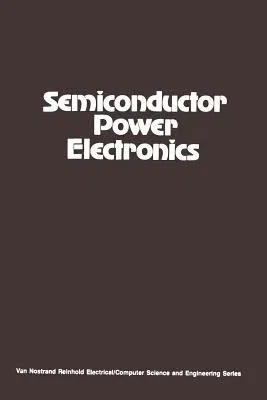Richard G Hoft
(Author)Semiconductor Power Electronics (Softcover Reprint of the Original 1st 1986)Paperback - Softcover Reprint of the Original 1st 1986, 4 June 2012

Qty
1
Turbo
Ships in 2 - 3 days
In Stock
Free Delivery
Cash on Delivery
15 Days
Free Returns
Secure Checkout
Part of Series
Van Nostrand Reinhold Electrical/Computer Science and Engine
Print Length
324 pages
Language
English
Publisher
Springer
Date Published
4 Jun 2012
ISBN-10
9401170177
ISBN-13
9789401170178
Description
Product Details
Author:
Book Edition:
Softcover Reprint of the Original 1st 1986
Book Format:
Paperback
Country of Origin:
NL
Date Published:
4 June 2012
Dimensions:
22.86 x
15.24 x
1.8 cm
ISBN-10:
9401170177
ISBN-13:
9789401170178
Language:
English
Location:
Dordrecht
Pages:
324
Publisher:
Weight:
453.59 gm

